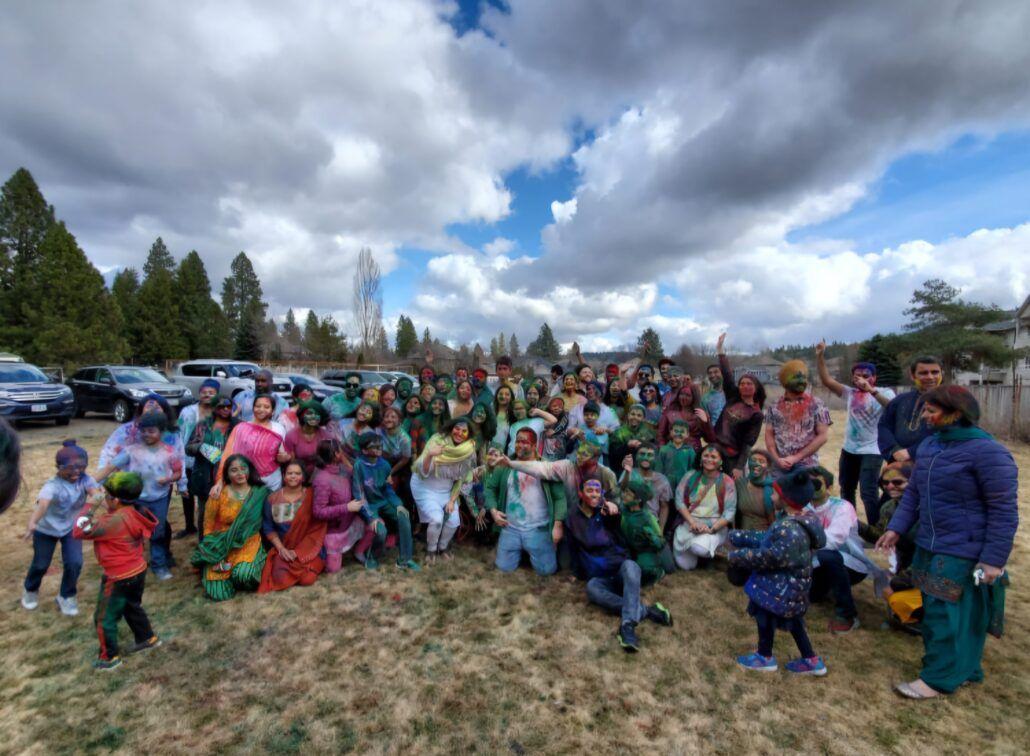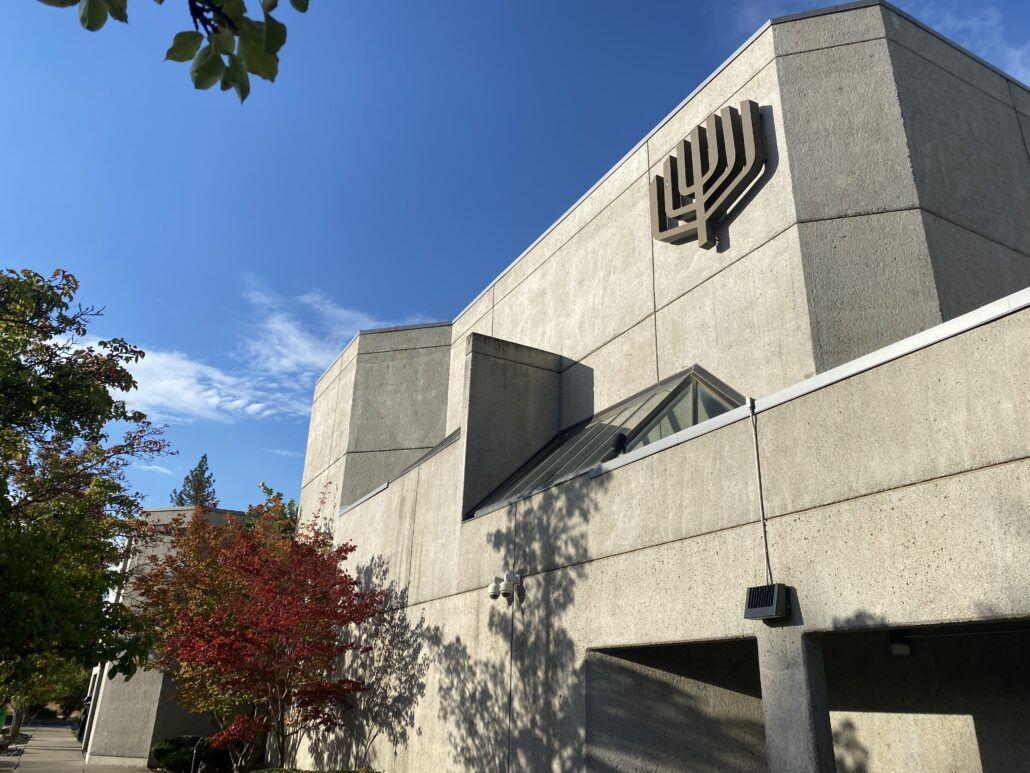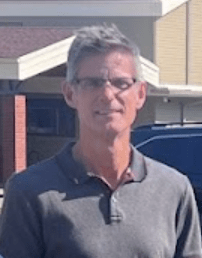Spokane faith leaders reflect on COVID lockdown 5 years later: ‘We came out stronger’
News Story by Lake Lust | FāVS News
On March 8, 2020, the Spokane Hindu Temple welcomed a crowd of more than 150 devotees to celebrate Holi. The relatively new community was renting a venue, having not yet acquired their permanent space. The festival went off without a hitch.
Just two weeks later, on March 23, former Gov. Jay Inslee issued a stay-at-home order for Washington state. The rapid spread of COVID-19 led to a ban on large gatherings, including all spiritual and recreational events.
“I remember it very well,” Himani Agrawal, a founding member and former president of the temple, said. “It was such a nice celebration, and we were hearing about COVID but not sure what it was. Then suddenly, within a few weeks, this lockdown happened.”

Dealing with COVID pandemic
Agrawal was one of hundreds of faith leaders in Spokane instantly forced to grapple with the ramifications of a global pandemic. Travel restrictions, a transition to remote services and changes in congregation engagement created unexpected responsibilities.
But the five-year anniversary of the lockdowns has given some congregations an opportunity to reflect. Since recovering from drastic change, many found that their services became more accessible, their motivation to accomplish long-term goals increased and their communities strengthened.
“The biggest lesson I learned is if you find ways to keep everybody together and not slip, you show perseverance, and you gain the power of unity,” Agrawal said. “Then, no matter what, things eventually get better and you come out stronger.”
Virtual v. in-person engagement
In March 2020, within weeks, Agrawal had helped the Spokane Hindu Temple transition to monthly Zoom gatherings. Rabbi Tamar Malino of Temple Beth Shalom and Congregation Emanu-El began hosting virtual sabbath and education programs. And the Rev. Steve Watts, pastor at Hamblen Park Presbyterian, was livestreaming Sunday morning services.
Now, all three groups have fully returned to in-person gatherings, but the option to join virtually remains — either occasionally, depending on the needs of individual members, or permanently as a complement to on-site events.
“Having gone through COVID gives us another set of tools and capacity to do things we haven’t done before,” Malino said. “We’ve shifted to Zoom for some of our meetings, especially in the winter time, just as an option to make it easier for folks to participate. We have some members who are homebound, and virtual services work well for them too.”
Online meetings also allow long-distance family members to participate when religious groups host life cycle events, from mitzvot and weddings to funerals and group prayers for the sick.
Nationally, religious attendance and identity appeared to remain stable pre- and post-pandemic, according to a 2023 investigation by the Survey Center on American Life. The pause of in-person worship created initial drops in participation from which churches and temples have almost completely recovered.
“In the beginning we had a change in engagement,” Watts said. “[The pandemic] gave a lot of people space to re-evaluate the role church attendance played in their life. Some people appreciated the Sunday free time they didn’t used to have, and others thought more about faith and actually ended up getting more engaged.”
In many cases, two or three years passed before religious organizations were able to completely open their doors again.
“It became evident how much in-person interaction is valuable and important,” Malino said. “People felt very strongly as we returned what a relief it was to be in each other’s presence again.”
Prioritizing change/development
Surviving the lockdown, Agrawal said, gave her organization the clarity to finally find a permanent worship space. By summer 2021, the Spokane Hindu Temple had their own building secured.
“Who would’ve thought? It was the dream of our community for so long,” she said. “Sometimes, you’re not able to take that step, but something so drastic happens that it gives you the strength to do things you were scared to do. It makes decisions easier, like, there’s no time like now.”

Similarly, Malino said her congregation is re-evaluating some programs and pursuing organizational change that was only an idea before the pandemic.
“We are now at a place where we’ve recovered to pre-pandemic existence,” she said. “It’s taken us these five years to recollect as an organization and move forward as opposed to just making up for lost ground. It feels good to be at that place.”
Watts said being forced to adapt to online services prompted a shift in church culture generally. Staff members had to quickly learn new technologies and support members who experienced unprecedented problems.
That adaptability has persisted, even five years later.
“The whole idea that we have to do things the way we’ve always done them is out the window,” he said. “Everyone has a fresh perspective and is open to doing things differently because we had to. There’s this value of innovation which we never had before COVID.”
Stronger faiths and communities
Many Spokane faith leaders said their congregations made it through the pandemic with a greater sense of unity and charity.
After federal social distancing recommendations went into effect in 2020, Temple Beth Shalom created an outreach team to check in on members who felt isolated. The Spokane Hindu Temple arranged pick-ups and drop-offs for essentials like groceries and traditional medicine. Many other churches, such as St. Mary Catholic Parish, began delivering food and hygiene products to those in need.
“The lockdown really emphasized what I thought were already fundamental aspects of Jewish life and human life in general,” Malino said. “Particularly human connection, and how hard it is to be alone, and how we need to do everything we can to make sure members of our community aren’t left alone to manage a stressful environment.”
At Hamblen Park Presbyterian, Watts said donations and philanthropic efforts have increased, and engagement is stronger in general.
“Our church calendar is a little less full, but there’s a lot less busywork, and more attention being paid to what’s important,” he said. “People are more chill, people are less caught up in the minutiae than we used to be.”
Now that lockdowns are a distant memory, and the Spokane Hindu Temple is enjoying its own space, Agrawal said spirituality played a major role in helping her community back on its feet.
“In our dharma, you need to face anything head-on,” she said. “When you hit rock bottom, there is no other space to go but toward recovery. To show humanity, take care of yourself and help whoever you can.”










I found this article interesting on several levels–learning the impact, the benefits, and how it shaped these faiths for the future. Humans can be so resilient in good ways as well….nice to read about that.